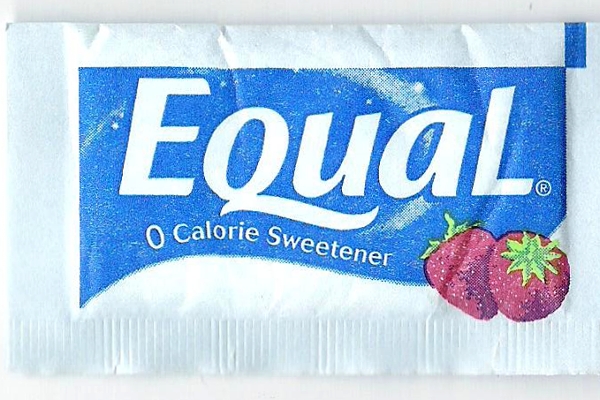- Helps to keep the body's blood sugar in balance
- Placed directly in cuts and wounds, more rapid healing, without scarring, is observed
- Low caloric, aids weight management
- Improved digestion
- Effective results applied to acne, seborrhea, dermatitis, eczema, etc.
- Beneficial for hypoglycemics
- Increases energy levels and mental activity
- Reduces desire for tobacco and alcoholic beverages
Back in 1991 the FDA issued an import alert which effectively blocked the importation and sale of Stevia in the US.
In 1995 they revised the earlier alert to allow Stevia and its extracts to be imported as a food supplement but not as a sweetener.
The Center for Science in the Public Interest (CSPI) thinks it's too soon, but in December 2008 the U.S. Food and Drug Administration (FDA) approved Stevia product rebaudioside A (rebiana) as a general purpose sweetener. (Rebiana is an ingredient derived from the leaf of the stevia plant.)
This opened the doors for companies to sell products containing Stevia in the United States. Now you can even buy the seeds yourself and grow the plant at home. You can find Stevia-based sweeteners in the grocery store, or pharmacy.
Trademarked stevia sweetners are Truvia™ (Coca Cola and Cargill) PureVia™ (Whole Earth Sweetener Company LLC and PepsiCo). Truvia and PureVia are already being sold as tabletop sweeteners. They're now hitting the shelves in popular drinks - including Sprite Green, Trop50, and some SoBe LifeWater.


Other countries have been using it for years.It is cultivated mainly in Paraguay, Brazil, Japan and China. There are other growers scattered across the Pacific Rim. Stevia is also being cultivated in Southern Ontario and Mexico.
The bottom line: If you use stevia sparingly (once or twice a day in a cup of tea, for example), it isn’t a great threat to you. But if stevia were marketed widely and used in diet sodas, it would be consumed by millions of people. And that might pose a public health threat. The problem that the CSPI sees it that it hasn't been tested enough. So they really don't know if there is a threat or not.
Stevia vs. Aspartame: Its components interfere with normal nerve cell function.
Equal and NutraSweet contain Phenylalanine (50 percent of aspartame). Persons with the genetic disorder phenylketonuria (PKU) cannot metabolize phenylalanine. This leads to dangerously high levels of phenylalanine in the brain (sometimes lethal). It has been shown that ingesting aspartame, especially along with carbohydrates, can lead to excess levels of phenylalanine in the brain even in persons who do not have PKU.
Methanol (aka wood alcohol/poison) alcohol (10 percent of aspartame) is a deadly poison.
Diketopiperazine (DKP) is a byproduct of aspartame metabolism. DKP has been implicated in the occurrence of brain tumors. DKP is formed in liquid aspartame-containing products during prolonged storage.
Here is one story of how Aspertame caused a woman to die from a brain tumor, found to be caused by drinking Diet Coke.http://www.youtube.com/watch?v=_rJ1jpr5c4Y
Sweet 'N Low
 Saccharin causes bladder cancer. Pregnant mothers are especially cautioned to stay away from saccharin, because even small usage of saccharin could overwhelm the developing fetus' defenses and cause damage to the developing bladder area.
Saccharin causes bladder cancer. Pregnant mothers are especially cautioned to stay away from saccharin, because even small usage of saccharin could overwhelm the developing fetus' defenses and cause damage to the developing bladder area.Stevia vs. Splenda
 The dangers of aspartame are now widely known, but the risks of using Splenda are starting to become exposed as well. Splenda is not natural; it is a chlorinated artificial sweetener. Splenda is actually "sucralose," and is made by in essence altering real sugar. They pull out some hydrogen-oxygen and replace it with chlorine. Study indicates that it interferes with the body's interaction with other drugs and nutrients, and that it suppresses beneficial bacteria. The inventors of Splenda admit around fifteen percent (15%) of sucralose is absorbed by the body, but they cannot guarantee us (out of this fifteen percent) what amount of chlorine stays in the body and what percent flushes out...
The dangers of aspartame are now widely known, but the risks of using Splenda are starting to become exposed as well. Splenda is not natural; it is a chlorinated artificial sweetener. Splenda is actually "sucralose," and is made by in essence altering real sugar. They pull out some hydrogen-oxygen and replace it with chlorine. Study indicates that it interferes with the body's interaction with other drugs and nutrients, and that it suppresses beneficial bacteria. The inventors of Splenda admit around fifteen percent (15%) of sucralose is absorbed by the body, but they cannot guarantee us (out of this fifteen percent) what amount of chlorine stays in the body and what percent flushes out...Stevia or Saccharin?
 The two safest choices of sweeteners to date do appear to be saccharin and Stevia.
The two safest choices of sweeteners to date do appear to be saccharin and Stevia.Saccharin is actually similar to stevia in its origin. It originally came from a plant imported from China, and in its original form, is a complex sugar extract from the plant itself.
I'm not sure I want to be the market's guinea pig. But for people who consume sugar substitutes anyway, it may be a safer solution.
http://www.stevia.com/Stevia_Article.aspx?Id=2269
http://healing.about.com/cs/herbaltherapy/a/stevia.htm
http://nutritionwonderland.com/2009/02/stevia-controversy/
http://www.mayoclinic.com/health/stevia/AN01733
http://www.mercola.com/article/aspartame/dangers.htm
http://www.truthaboutsplenda.com/factvsfiction/index.html
http://www.splendaexposed.com/
http://www.bellaonline.com/articles/art15448.asp
http://www.ncbi.nlm.nih.gov/pmc/articles/PMC1637197/









0 comments:
Post a Comment